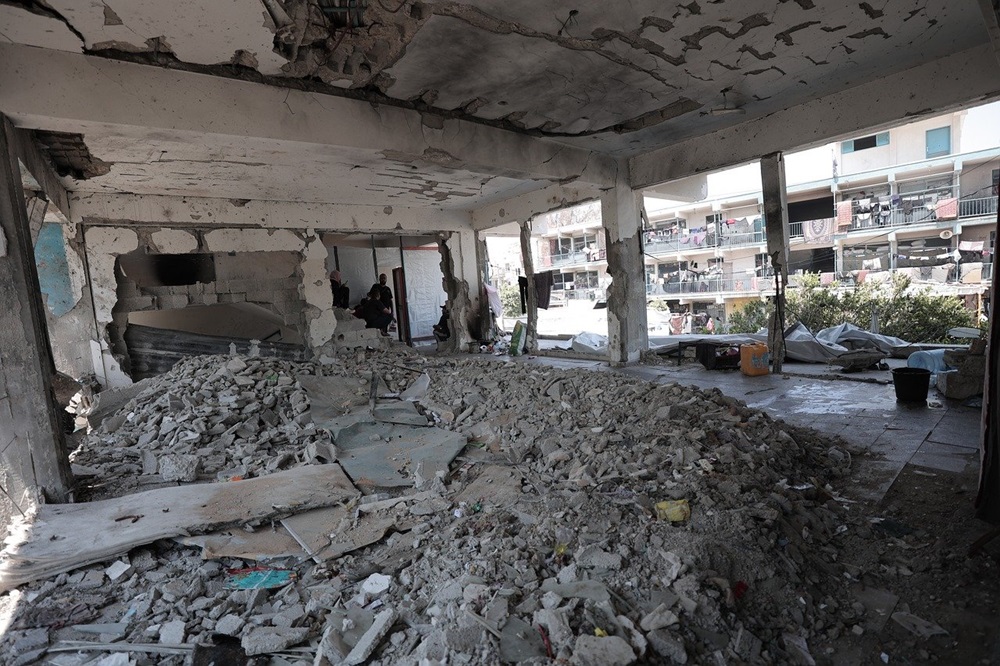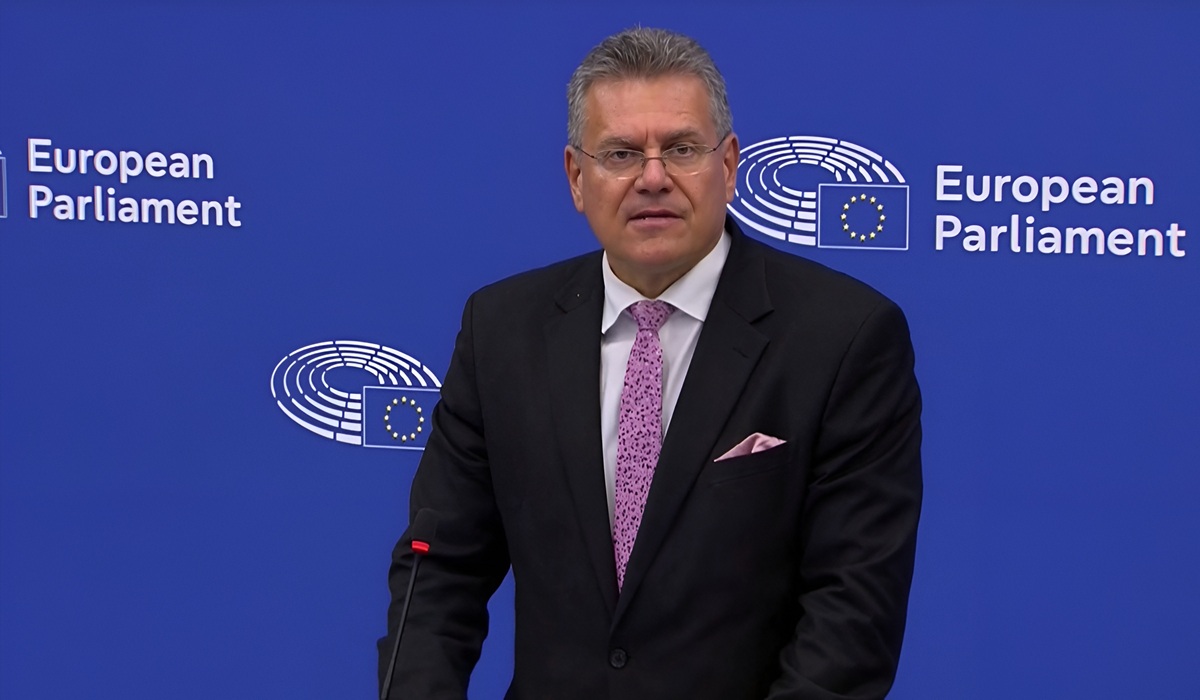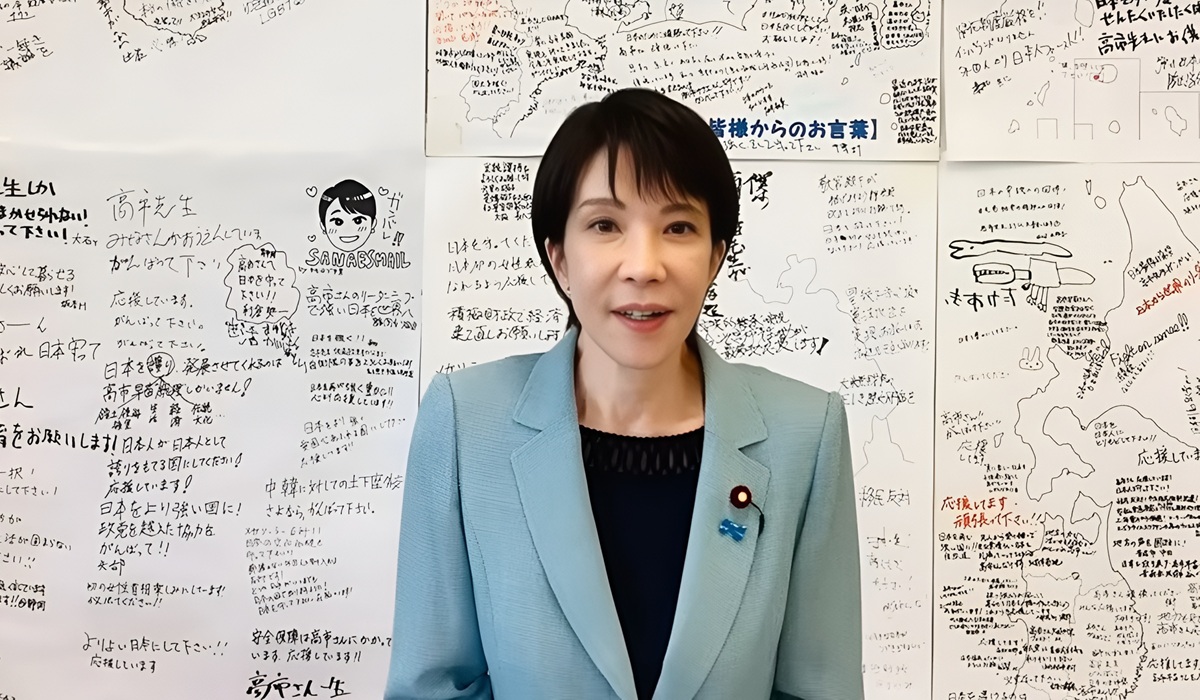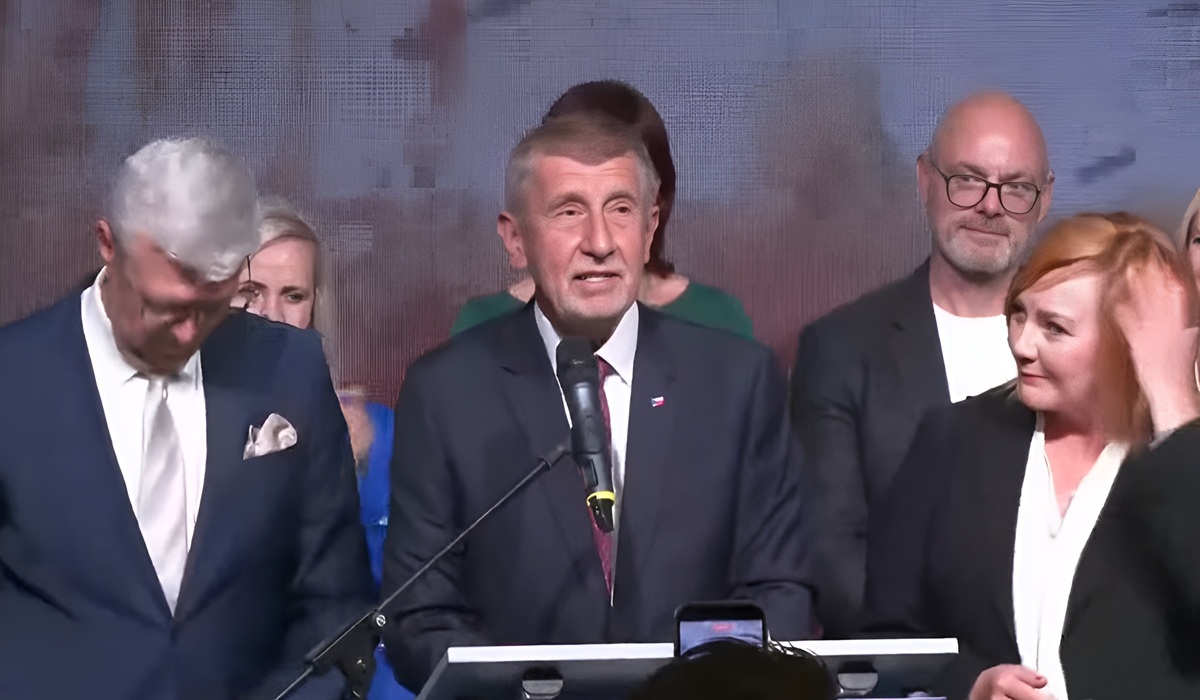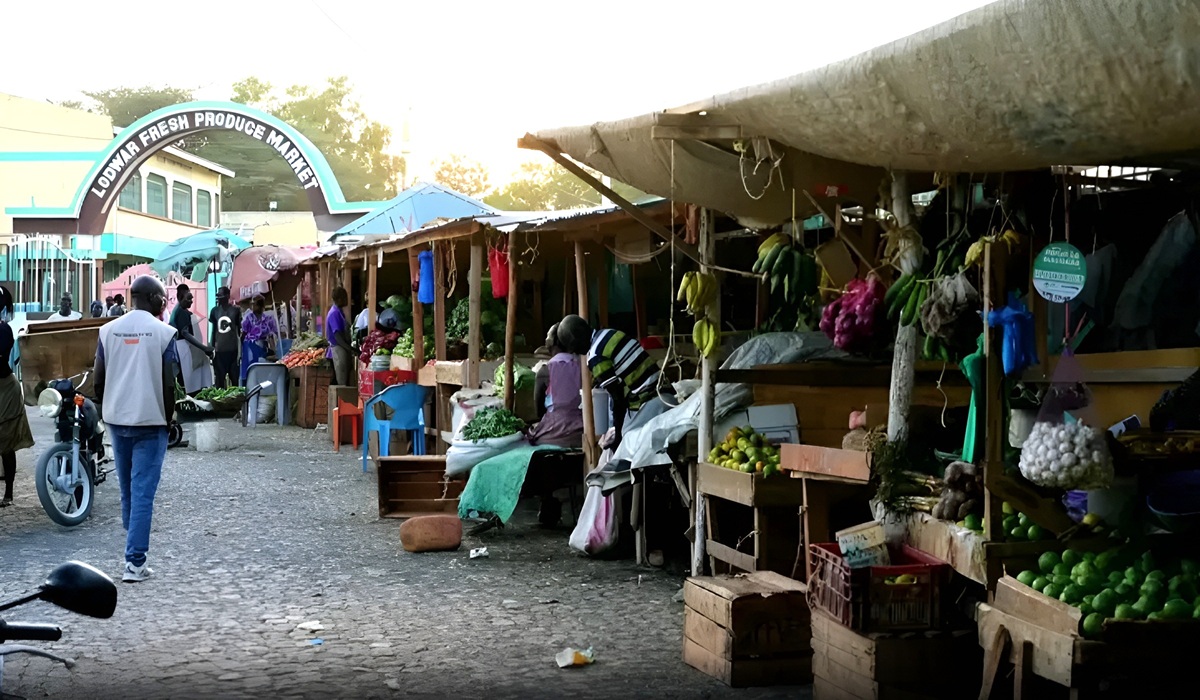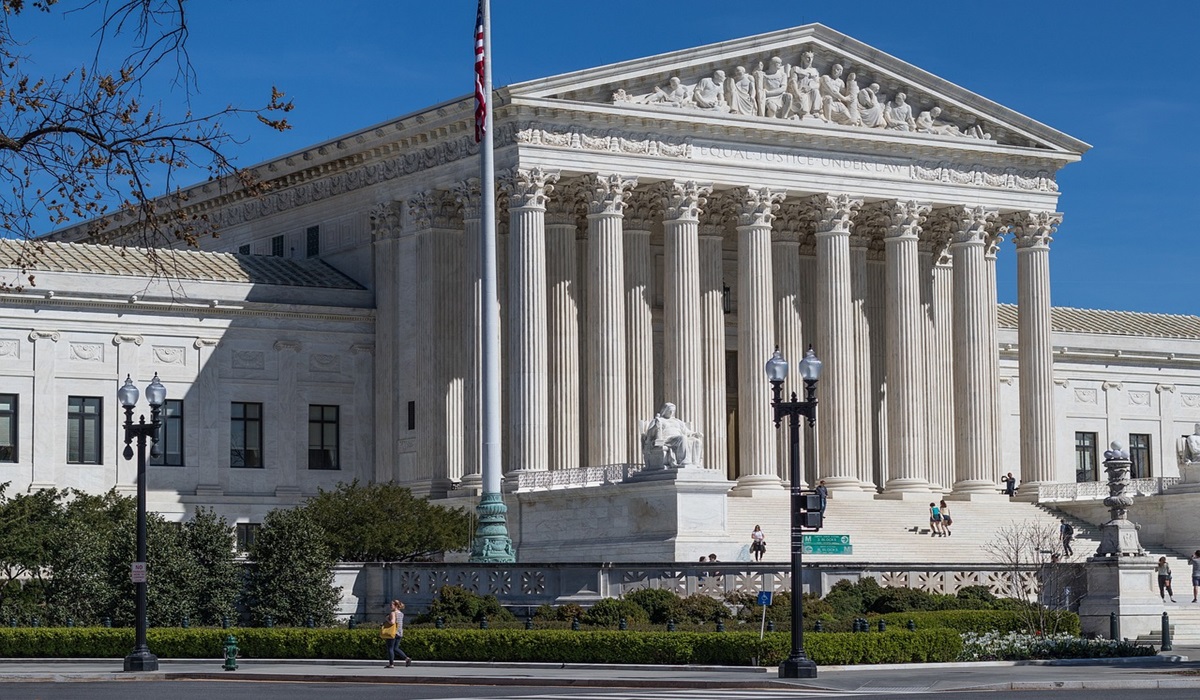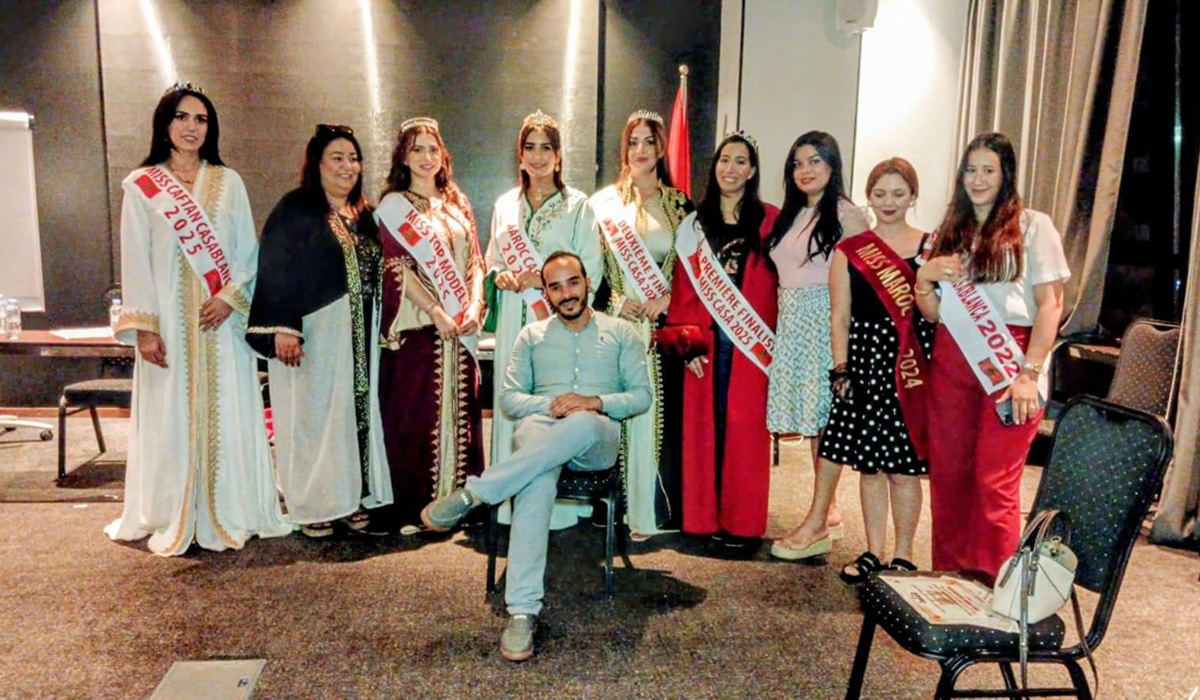Africa’s Chains: The IMF, World Bank, NATO, EU and the UN
- TDS News
- Africa
- Breaking News
- May 31, 2025
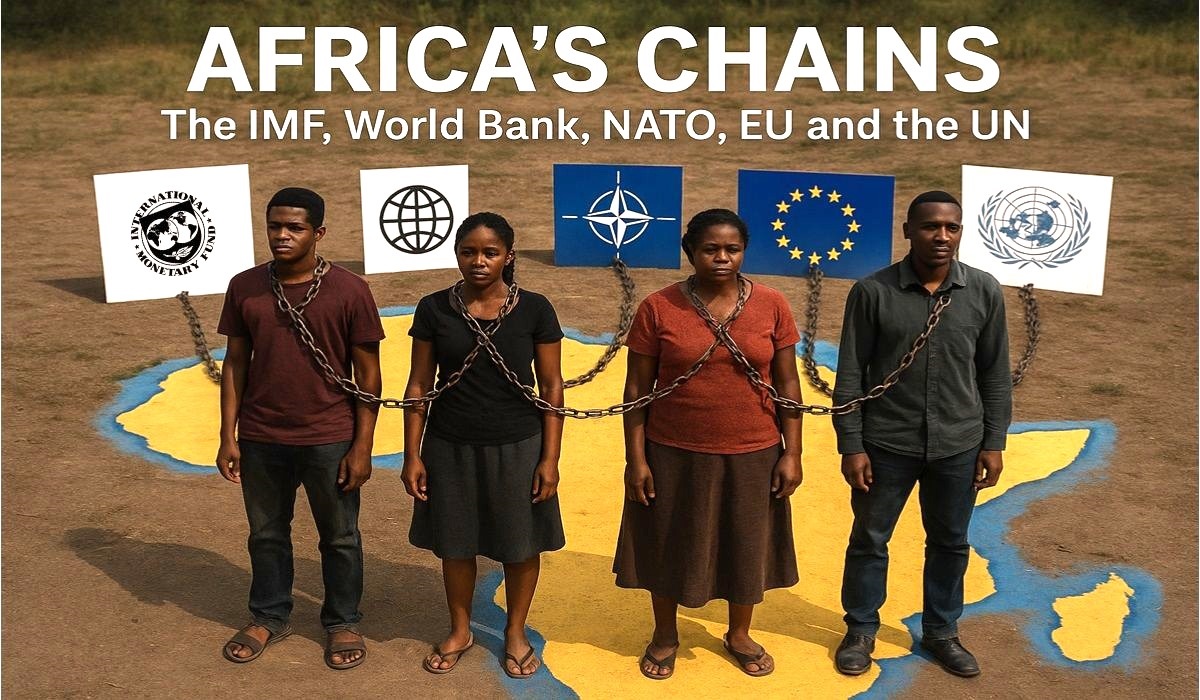
How Global Organizations Have Systematically Undermined Africa’s Sovereignty and Progress
For much of the post-colonial era, Africa has existed not as an equal participant in the global order, but as a resource pool, debt experiment, and military playground for Western powers. The institutions that promised international cooperation—such as the United Nations (UN), the European Union (EU), the International Monetary Fund (IMF), the World Bank, and NATO—have repeatedly demonstrated that their core function is not to uplift the continent, but to restrain it. From economic entrapment to political manipulation and military intervention, these organizations have systemically suppressed African sovereignty. Now, as a new Africa emerges, asserting its independence and charting its destiny, these same institutions are scrambling, desperate to preserve a status quo that has long enriched the West at Africa’s expense.
The United Nations: The Silent Partner of Oppression
The United Nations was meant to embody international cooperation and peace, but Africa has consistently been treated as a silent observer rather than an active participant. The UN Security Council—the most powerful body within the organization—still maintains the colonial legacy of power distribution. Africa, despite having 54 member states and over 1.4 billion people, holds no permanent seat. It must beg for relevance while countries like the UK and France maintain veto power, even though their global influence has long diminished.
More damaging, however, has been the UN’s role in legitimizing foreign interventions and dictating policy through international mandates that often serve the interests of former colonial rulers. UN peacekeeping forces have been implicated in scandals across Africa—ranging from sexual abuse in the Central African Republic to inaction during genocides in Rwanda and the Democratic Republic of Congo. The blue helmets often protect foreign economic interests or simply maintain fragile stalemates while offering no real path to African self-determination.
Furthermore, UN agencies often act as bottlenecks for African progress, enforcing Western-imposed benchmarks and “development goals” that do not reflect the realities or aspirations of local populations. In many ways, the UN has functioned less like a global forum and more like a colonial council with African leaders allowed to speak—but never to decide.
The European Union: The Reinvented Empire
The European Union’s relationship with Africa is a continuation of colonialism under a more diplomatic banner. Through Economic Partnership Agreements (EPAs), the EU secures access to African markets under conditions that cripple local industry. African nations are often pressured to remove tariffs, allowing cheap European goods to flood their economies—while simultaneously facing stiff restrictions when exporting raw or finished goods to Europe. This trade imbalance is not a flaw; it’s a feature.
Even more nefarious is France’s domination over 14 African countries via the CFA franc. This currency, introduced during colonial rule, still mandates that these nations deposit at least 50% of their foreign exchange reserves in the French treasury. France controls the monetary policy and takes interest on the funds—then offers loans back to these same countries at high rates. In essence, these African nations are paying for their own enslavement with zero economic sovereignty. France’s grip through the CFA system bleeds over $500 billion from Africa each year.
This is not cooperation—it is modern economic piracy.
And France’s destruction of Haiti is the textbook example of how Europe deals with independent Black nations. After Haiti’s successful slave revolt and independence in 1804, France demanded reparations for “lost property”—the formerly enslaved people—and extorted what would now amount to more than $20 billion. That debt crippled Haiti’s economy and plunged the country into a dependency trap that endures today. If this is what Europe does to free nations, Africa’s wariness of the EU is not paranoia. It is survival.
The IMF and World Bank: Debt as Colonialism 2.0
In the wake of independence movements across Africa during the mid-20th century, Western powers had a problem: how to maintain control without military occupation. Enter the International Monetary Fund and the World Bank—tools of economic coercion that presented themselves as development institutions. But their loans came with strings so tight they became nooses.
The IMF’s Structural Adjustment Programs (SAPs) devastated public sectors across the continent. African countries desperate for funding were forced to privatize state industries, cut public spending, reduce social services, and eliminate subsidies. Schools were closed. Hospitals deteriorated. Agriculture became export-oriented, pushing out local food production and creating hunger in food-rich nations.
And what happened to the profits from privatized industries? They were snapped up by Western companies or corrupt regimes propped up by foreign governments. The World Bank, often working in tandem with the IMF, poured billions into infrastructure—not to connect African communities or stimulate development, but to extract resources more efficiently. Roads led to ports, not villages. Railways connected mines to ships, not cities to one another. Even electricity grids prioritized foreign-owned mines over local homes.
When countries struggled to repay, the IMF would offer more loans—at higher interest. This created a cycle of debt dependency so severe that even today, many African countries spend more servicing debt than funding education or healthcare. These institutions have not merely failed Africa; they have entrapped it in an economic model where growth is impossible and dependency is permanent.
NATO: Imperialism with Missiles
While the IMF and World Bank extract through economics, NATO operates through force. In 2011, NATO obliterated Libya—one of Africa’s most prosperous nations under Muammar Gaddafi. Whatever one’s opinion of Gaddafi, he had begun uniting African nations under a shared vision of economic and political independence. He spearheaded the African Monetary Fund and pushed for a gold-backed currency to replace the CFA franc and the U.S. dollar.
NATO destroyed that dream with bombs. Gaddafi was tortured and murdered. Libya, once a stable nation, plunged into chaos, spawning warlords, civil war, and open-air slave markets. That is the NATO legacy—intervention that dismantles, destabilizes, and decapitates.
Today, similar strategies are at play. In the Sahel region, countries like Burkina Faso, Mali, and Niger are rising against neocolonial control. Leaders such as Captain Ibrahim Traoré of Burkina Faso have expelled French troops and refused foreign military interference. The West’s response? Sanctions, smear campaigns, and attempted assassinations. The repeated attempts on Traoré’s life are not coincidental—they are strategic. They mirror the killings of Patrice Lumumba, Thomas Sankara, and Kwame Nkrumah—leaders who were also murdered or overthrown for daring to demand sovereignty.
And let’s not ignore the role of U.S. AFRICOM, under the command of General Michael Langley, which coordinates U.S. military activity across the continent. Cloaked in the language of “counter-terrorism,” AFRICOM has built drone bases and intelligence centers, operating with little oversight and often in direct contradiction to the wishes of local governments. This is not peacekeeping. It’s occupation with a smile.
The West’s Problem: Africa Is Rising
What terrifies the West today is not an Africa in chaos, but an Africa in control. The new Africa is young, confident, and ready to break the chains. Countries are forming regional alliances outside of Western control. BRICS partnerships with China, Russia, Brazil, and others are giving Africa alternative economic pathways. The African Continental Free Trade Area is creating one of the largest trading blocs in the world. African countries are also demanding reparations, renegotiating contracts, and—most importantly—taking back their resources.
The West is panicking because the tools of dominance are failing. The propaganda is crumbling. The fear tactics aren’t working. Young Africans no longer aspire to emigrate to France or the U.S. in search of opportunity. They want to build at home. They want control over their currency, their culture, their industries, and their borders.
But that kind of independence is a threat—to Western corporations, to international financiers, and to foreign militaries who have long exploited the continent. That’s why sanctions are slapped on leaders who reject the IMF. That’s why coups are supported against anti-colonial presidents. That’s why African unity is so aggressively undermined at every turn.
A Final Reckoning: Time to Disband These Institutions
The United Nations. The European Union. The IMF. The World Bank. NATO.
These are not neutral bodies. They are extensions of a global order built on slavery, colonization, theft, and war. They were never designed to empower Africa. Their continued existence serves only to ensure Africa’s exploitation remains legal, organized, and palatable to Western voters.
It is time to stop pretending that reform is possible. These institutions must be dismantled—not reformed, not restructured, but disbanded—and kept out of African progress. Africa does not need foreign “partners” with a history of sabotage. It needs respect, reparations, and the room to rise on its own terms.
The era of African submission is over. The future belongs to the continent, not to its former masters. And no institution—no matter how powerful—can stop the fire of a people finally reclaiming what was always theirs.

